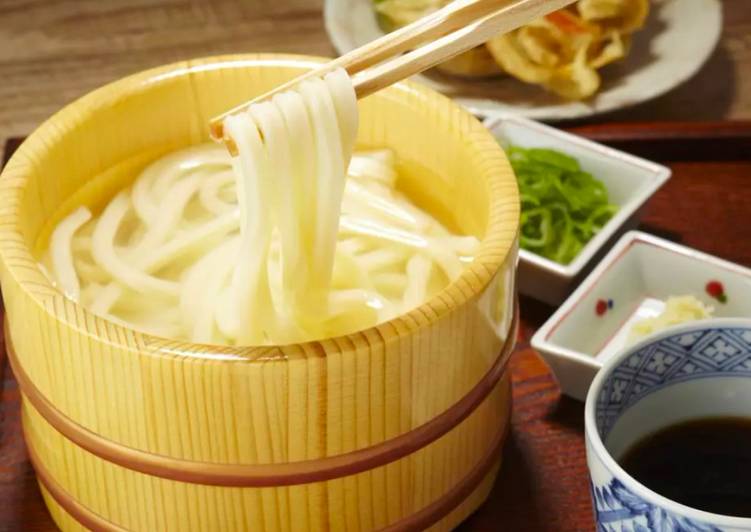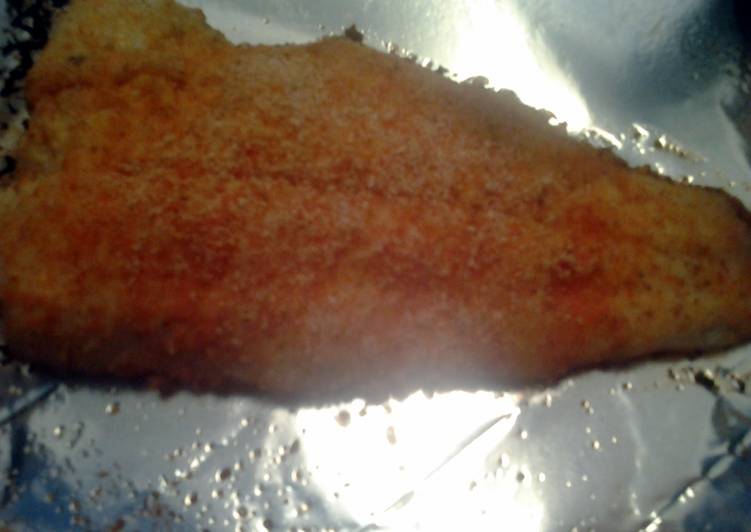
Hello everybody, hope you are having an amazing day today. Today, we’re going to prepare a special dish, authentic gourmet vegan udon noodles. One of my favorites. For mine, I will make it a bit tasty. This will be really delicious.
Authentic Gourmet Vegan Udon Noodles is one of the most favored of recent trending meals on earth. It is easy, it’s quick, it tastes yummy. It’s enjoyed by millions daily. They’re fine and they look fantastic. Authentic Gourmet Vegan Udon Noodles is something which I have loved my whole life.
Great recipe for Authentic Gourmet Vegan Udon Noodles. We have created a delicious Udon noodle soup, carefully flavored with only pure plant-based ingredients and free from artificial flavorings! The leftover ingredients to make the Udon Dashi can also be eaten and are very tasty. Authentic Gourmet Vegan Udon Noodles is something which I have loved my whole life.
To begin with this recipe, we must prepare a few components. You can cook authentic gourmet vegan udon noodles using 18 ingredients and 16 steps. Here is how you can achieve that.
The ingredients needed to make Authentic Gourmet Vegan Udon Noodles:
- Prepare 5 dried Shiitake mushrooms (dried weight 20-30g)
- Take 12 g Kombu (dried kelp)
- Take 20 g dried soybeans
- Prepare 2 g Kanpyo (Dried Gourd Strips)
- Prepare Udon noodles for two people
- Take Condiments of your choice, such as chopped scallions, grated ginger, grated daikon and nori
- Make ready SEASONING "A" for the Shiitake
- Make ready 30 ml Mirin
- Get 30 ml soy sauce
- Make ready 1 tsp grain vinegar (such as Japanese Rice Vinegar)
- Prepare SEASONING "B" for the KAESHI or seasoning for the Udon Dashi broth)
- Take ◎ 40ml Soy sauce
- Get ◎ 15g brown sugar
- Make ready ◎ 15ml Mirin
- Take SEASONING "C" for the leftover Konbu, Soybean, Konpyo & Shiitake Stems
- Make ready ○ 50ml water
- Take ○ 1 Tbsp soy sauce
- Make ready ○ 2 tsp Mirin
Udon noodles are special for Zen Monks - A celebration food fo be enjoyed at festivals- Eating noisily and as much as they like! We will share an authentic Ud. Udon noodles are thick egg-free Japanese wheat noodles. These noodles have a soft, chewy texture and are rich in protein and fiber.
Steps to make Authentic Gourmet Vegan Udon Noodles:
- Soak the Kombu in water for 30 minutes and then cut finely. Kombu Dashi will further deepen from the cut surfaces.
- Heat the frying pan, and roast the dried soybeans over low heat until golden brown. The sound will change from a dry metallic sound to a kind of muffled sound. When the sound changes back to the original dry metallic sound, they are done.
- Soak the Kombu and roasted soybeans in water overnight. Rinse the dried Shiitake and place it in water in a separate bowl and soak overnight in the fridge.
- Use the water to rehydrate the Kombu-soybean and Shiitake which creates dashi. Use 350ml of the Kombu-soybean dashi and add 300ml of the Shiitake Dashi. You will need a total of 650ml of the two dashi so adjust liquid levels as needed.
- Add the Kanpyo to (4.), and heat with Shiitake, Kombu, and soybeans, and bring to a boil. Boil on high heat for two minutes and remove the scum.
- Remove from the heat and allow to cool for 30 minutes. While cooling, the Dashi will further emerge.
- Strain the Dashi from (6.). You will need a total of 440ml. Add more water if less than 440ml (The Dashi leftover soybeans, kanpyo & konbu make a delicious side dish, so after straining, set the leftovers aside to use latter).
- Remove the Shiitake stems (you will use them later) and slice the Shiitake caps into 5mm strips.
- Place 300ml of the 420ml Dashi from (7.) into a pot and add the Shiitake caps, with Seasonings "A" (Mirin, soy sauce, and vinegar). Boil for a short while and remove the scum.
- Simmer on low heat for another ten minutes to reduce to about 180ml, then remove and allow to cool. After ten minutes, take out the boiled Shiitake only. You will use the remaining 180ml of this Dashi later in Step 12.
- Place the Seasonings "B" in a separate pot. Because the amounts are small, make the Kaeshi by tilting the pan over low heat and mixing well with chopsticks until the sugar melts.
- Add 180ml of the leftover Dashi from which you removed the simmered Shiitake in (10.), and 140ml of the remaining dashi from (7.) and the Kaeshi Seasoning from (11.).
- Chill the soup from (12.). You should have approximately 350ml of Udon soup. As it cools, the taste will mellow, and over time the Umami taste will become deeper.
- Cut off only the hard part of the Shiitake stems and cut into small pieces to make them easier to eat. Along with the leftover soybean, konbu, and kanpyo mix Seasonings "C" and simmer until only a little Dashi remains.
- Boil the Udon noodles and eat with the Udon Dashi from (13.). The Udon Dashi can be served chilled, room temperature of hot depending on the season and your preference. Enjoy the boiled Shiitake, the boiled items from (14.), and condiments of your choice such as chopped green scallions, grated ginger, grated Daikon, and Nori.
- Traditionally, the boiled Udon Noodles and Udon Dashi are served separately. The Udon Noodles are dipped into the Dashi and eaten slurped down. Condiments are usually added to the Dashi in small quantities. Japanese like to add just enough condiments for one mouthful to enjoy various taste combinations for the Udon meal. Of course, you are also welcome to add the Shiitake and/or the Leftover Dashi Ingredients to the Udon Dashi or eaten separately as a side dish.
Udon noodles are thick egg-free Japanese wheat noodles. These noodles have a soft, chewy texture and are rich in protein and fiber. Additionally, they are light on the stomach and easily digestible. For a quick cheap tasty bowl of noodle soup, just boil some udon noodles and add some miso soup paste and vegetables. Sold by Hakubaku USA and ships from Amazon Fulfillment.
So that’s going to wrap it up with this special food authentic gourmet vegan udon noodles recipe. Thanks so much for your time. I’m confident you can make this at home. There is gonna be more interesting food in home recipes coming up. Don’t forget to save this page in your browser, and share it to your family, friends and colleague. Thank you for reading. Go on get cooking!

